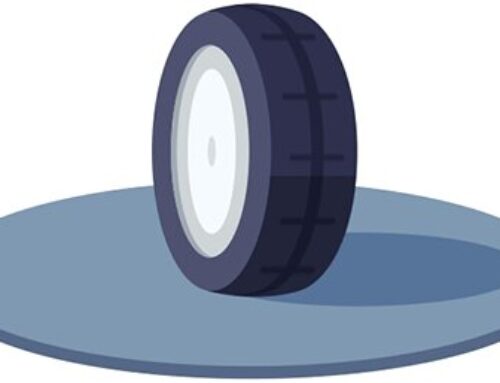Introduction to Tyre Pressure Monitoring Systems (TPMS)
Maintaining the proper tyre pressure is pivotal for both safety and performance. A Tyre Pressure Monitoring Systems (TPMS) is designed to keep you informed about your tyre pressure, ensuring that your vehicle runs smoothly and safely. In this article, we’ll explore what TPMS is, why it’s important, and how it could help save lives, reduce costs, and enhance the lifespan of your tyres.
What is a Tyre Pressure Monitoring System (TPMS)?
A Tyre Pressure Monitoring System (TPMS) is a technology designed to monitor the air pressure inside your tyres in real-time. There are two main types of TPMS:
- Direct TPMS: Sensors located in each tyre that measure the tyre pressure and send the data to your vehicle’s computer.
- Indirect TPMS: Uses the vehicle’s anti-lock braking system (ABS) sensors to estimate tyre pressure by monitoring the speed and rotation of each tyre.
Both systems aim to warn the driver when tyre pressure is either too high or too low, which can affect the vehicle’s safety and performance.
Why TPMS is Important for Vehicle Safety
1. Enhanced Safety with TPMS Monitoring
One of the primary reasons TPMS is pivotal is its role in improving safety. Under-inflated tyres are one of the main reasons for tyre blowouts, which can lead to severe accidents. By monitoring the tyre pressure, TPMS alerts you to problems before they become dangerous, allowing you to take corrective action.
2. Improved Fuel Efficiency through Proper Pressure
Tyres with the correct pressure reduce rolling resistance, meaning the vehicle doesn’t have to work as hard to move. Studies show that vehicles with under-inflated tyres consume more fuel, leading to higher costs. TPMS ensures your tyres are at the optimal pressure, leading to better fuel economy.
3. Extended Tyre Lifespan with Effective Monitoring
Incorrect tyre pressure can cause uneven wear, leading to early tyre failure. With TPMS, you can avoid costly replacements by ensuring your tyres wear evenly, prolonging their lifespan.
4. Better Vehicle Handling and Performance with TPMS
under-inflated or over-inflated Tyres can impact your vehicle’s handling, braking distance, and cornering ability. TPMS ensures that your tyres are at the right pressure, providing a smoother and safer driving experience.
How Does TPMS Work in Real-Time?
TPMS continuously monitors the tyre pressure and alerts the driver if it drops or rises above recommended levels. This early warning system gives you the opportunity to address issues before they lead to dangerous situations.
Is TPMS Required in Pakistan?
While TPMS is mandatory in many regions, it is not a law in Pakistan. However, many new vehicles, especially high-end models, come equipped with TPMS as a standard feature.
Can TPMS Save You Money?
Absolutely! Here’s how:
- Reduced Tyre Replacement Costs: Properly inflated tyres wear evenly, meaning you won’t need to replace them as often.
- Lower Fuel Bills: Tyres at the correct pressure reduce rolling resistance, leading to better fuel efficiency.
- Avoid Costly Repairs: By preventing blowouts and other tyre issues, TPMS helps you avoid expensive repairs.
Conclusion: Why TPMS is Essential for Your Vehicle
Tyre Pressure Monitoring Systems (TPMS) are crucial for maintaining optimal tyre performance, ensuring safety, and improving fuel efficiency. Installing TPMS in your vehicle can save you money and prevent dangerous situations on the road. To keep your vehicle running smoothly and safely, consider installing TPMS at a trusted tyre shop, such as Japan Tyres in Islamabad and Rawalpindi.
For More Information Chat With Japan Tyres On WhatsApp!





This piece is top-notch! It is essential reading for anybody with an interest in the subject because of your extensive study and clear explanations. Thank you for taking the time to provide such helpful and practical advice. You are doing an excellent job.
Thank you for this comprehensive and informative article. Your writing style is engaging, and the way you presented the information made it easy to follow. I learned a lot from this post and will definitely be referring back to it in the future.